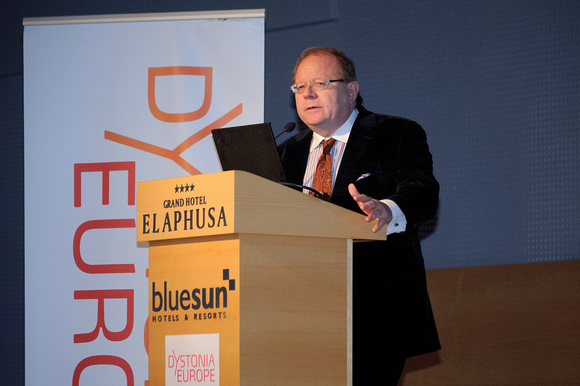DE: Congratulations for your new book. What was the idea behind it?
DD: The book is based on the concept of our ‘International Congresses on Treatment of Dystonia’, a congress series well established over the last ten years. We want to focus on one disorder only. And for this disorder we want to combine all therapeutic approaches. Most of the time meetings are focused on special methods and treatments. We believe, this will narrow down the therapeutic options. This is especially the case in a disorder like dystonia where there is no causal and definite treatment available. With this book we strongly advocate multidisciplinary treatment strategies.

DE: What therapies are you covering?
DD: We focus on botulinum toxin therapy as the treatment of choice for most of the patients with dystonia. We also cover deep brain stimulation, conventional pharmacotherapy, rehabilitation, conventional surgical treatments and emerging therapies.
DE: Are you also dealing with the disorder itself?
DD: Yes, we update our readers on classification, pathophysiology, epidemiology, genetics, imaging, animal models and scales for documenting dystonia.
DE: What about special forms of dystonia?
DD: We have sections on musician’s dystonia, on pediatric dystonia, on psychogenic dystonia and on symptomatic dystonia.
DE: What is the target audience?
DD: We pulled the book together for ‘All who care for Patients with Dystonia’ including physicians and allied health care professionals. The medical areas covered include neurology, neurosurgery, neuropaediatrics and neurorehabilitation.
DE: Do you think that also patients may benefit from this book?
DD: We know that there is a substantial proportion of dystonia patients interested in understanding their disorder and their treatments. Many of them are actually members of those patient organisations you are representing with Dystonia Europe.
We put special emphasis on a plain and clear language patients will easily understand. Even relatives might want to get some background information, so that they can better support their patients.
DE: We wish this book good luck!

